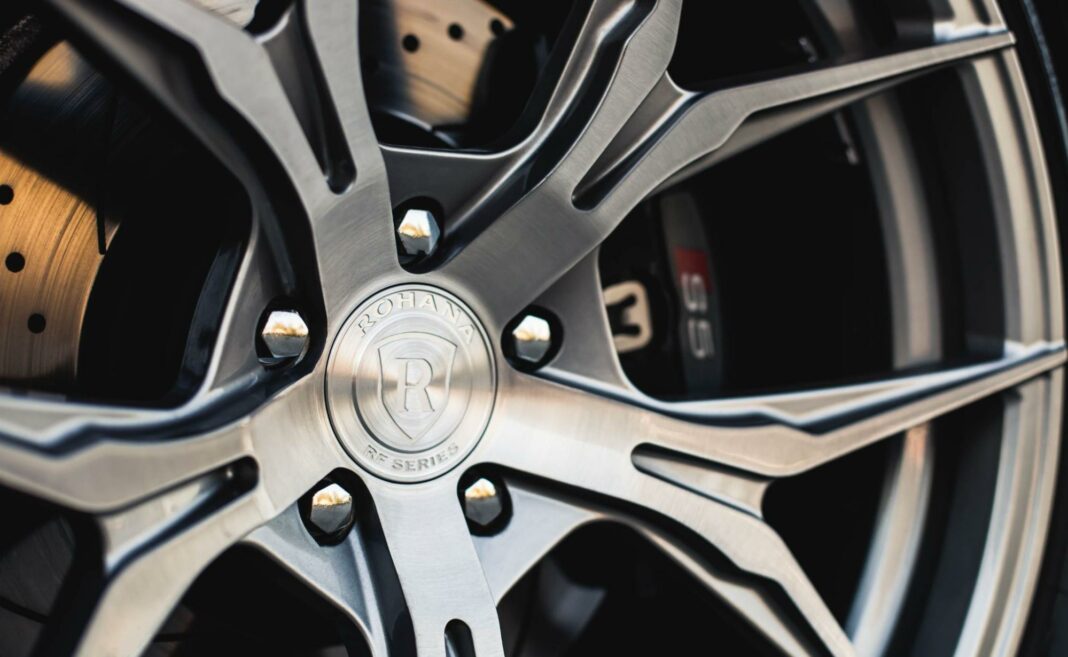Alloy wheels, known for their attractive design and performance benefits, are a top choice among vehicle enthusiasts and everyday motorists. This essential guide outlines the steps for maintaining your alloy wheels in the UK, ensuring their longevity and peak performance. It also covers the process of alloy refurbishment when needed.
Table of Contents
- Introduction
- Tools and Materials
- Cleaning Alloy Wheels
- Protecting Alloy Wheels
- Repairing Alloy Wheels
- Alloy Refurbishment
- Introduction
Alloy wheels, made primarily from aluminium and other light metals, offer several advantages over standard steel wheels, such as improved performance, better fuel economy, and an elegant look. To maintain these benefits and your vehicle’s value, regular maintenance and occasionally alloy refurbishment are crucial.
2. Tools and Materials
Gather the following tools and materials before you start maintaining your alloy wheels or undertaking a refurbishment project:
- A hose or bucket of water
- Car wash soap or alloy wheel cleaner
- Soft bristle brush or microfiber cloth
- Wheel brush
- Wheel cleaner brush (optional)
- Wheel cleaner gel (for stubborn grime)
- Wheel wax or sealant
- Applicator pads or microfiber towels
- Plastic bags or wheel covers
- Latex gloves (optional)
- Jack and jack stands (for wheel removal, if necessary)
- Socket set (for wheel removal, if necessary)
- Wheel repair kit (optional for minor damage)
- Alloy refurbishment kit (if needed for extensive repairs)
- Cleaning Alloy Wheels
Regular cleaning is essential to avoid brake dust and road debris accumulation that can damage your alloy wheels.
- Step 1: Prepare Your Workspace
- Park your vehicle in a shaded area to avoid cleaning solutions drying too quickly.
- Ensure your alloy wheels are cool to the touch to prevent damage from temperature fluctuations.
Step 2: Rinse
- Begin by rinsing the wheels with water to remove loose dirt and debris.
Step 3: Apply Cleaner
- Use a wheel cleaner or a mixture of car wash soap and water to apply a generous layer of cleaner to the wheels. Allow it to dwell for a few minutes to loosen stubborn grime.
Step 4: Scrub
- Gently scrub the wheels with a soft bristle brush, wheel brush, and wheel cleaner brush if needed. Be cautious not to scratch the surface.
- Pay extra attention to the nooks and crannies where dirt tends to accumulate.
Step 5: Rinse Again
- Rinse the wheels thoroughly to remove all cleaning residue.
Step 6: Dry
- Dry the wheels using a clean microfiber towel to prevent water spots.
- Protecting Alloy Wheels
To maintain the lustre and protection of your alloy wheels, consider applying a sealant or wheel wax.
- Step 1: Apply Wax or Sealant
- Use an applicator pad to apply a thin, even wheel wax or sealant layer.
- Follow the product’s instructions regarding drying time.
Step 2: Buff
- After the recommended drying period, buff the wheels with a clean microfiber towel until they shine.
- Repairing Alloy Wheels
For minor damage, a wheel repair kit can be effective, but major damage may require professional alloy refurbishment.
- Step 1: Clean the Damaged Area
- Ensure the damaged area is clean and free from any dirt or debris.
Step 2: Apply Filler
- Use the wheel repair kit to apply filler to the damaged area. Follow the kit’s instructions carefully.
Step 3: Sand and Smooth
- Once the filler has dried, sand it to create a smooth surface. Gradually use finer grit sandpaper for a polished finish.
Step 4: Paint
- If necessary, use touch-up paint to match the wheel’s colour and paint over the repaired area.
Step 5: Protect
- Apply a wheel wax or sealant to the entire wheel to protect the repaired area.
- Alloy Refurbishment
For extensive damage such as deep scratches or severe corrosion, seeking professional refurbishment services is recommended to bring your wheels back to their original state.
To conclude, proper care of your alloy wheels in the UK is a valuable investment, improving the look of your vehicle and prolonging the life of the wheels. While regular upkeep and protection are important, significant damage may necessitate professional alloy refurbishment.




